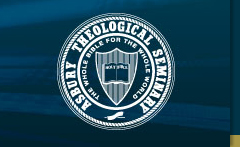Files
Download Full Text (123 KB)
Summary
1. L. Wood, God and History, The Dialectical Tension of Faith and History in Modern Thought (2005). Learning to think theologically assumes that one has a basic grasp of the substantive issues in theology. This means one must be acquainted with the way that theology has been done since the earliest days of Church history. Because the key methodological issue of Christian theology is related to its historical claims, the focus of this work is on the relationship of faith and history. 2. L. Wood, Theology as History and Hermeneutics, A Post-Critical Conversation with Contemporary Theology (2005). There are many competing theological alternatives in the contemporary world, presenting evangelical thought with a challenge on how to learn from them while remaining true to the Scriptures. This work will introduce students to the representative theologians and movements of the 21st century. The uniqueness of evangelicalism is its commitment to the authority of Scripture, while at the same time being willing to dialog with opposing points of view in order to learn further insights on how to relate the enduring message of the Bible in today’s world. 3. Donald Thorsen,The Wesleyan Quadrilateral (2005). This is the classical work on Wesley’s methodological assumptions. Asbury Theological Seminary is a confessional school of theology. Although we do not think that all schools ought to be confessional, the founding fathers decided Asbury would be established primarily to train students in the Wesleyan tradition and hence we have chosen to be confessional. Thorsen is a distinguished alumnus of Asbury, and his work on Wesley’s methodology will introduce the student to the distinctive features of the Wesleyan way of doing theology. 4. Barry L. Callen, Caught Between Truths, The Central Paradoxes of Christian Faith (Emeth Press, 2007). This is the work of a seasoned scholar who reflects the generous spirit and balanced methodology of the Wesleyan tradition. Students will write a 300-word summary of each chapter. 5. James K. A. Smith, Who’s Afraid of Postmodernism? Taking Derrida, Lyotard, and Foucault to Church (Grand Rapids: Baker Academic, 2006). This Reformed author shows how Evangelicals can learn from postmodernism while remaining faithful to the Bible. He particularly shows how some of the insights of postmodernism contribute to a renewed understanding of the Trinitarian orthodoxy of the Early Church Fathers. This book is required collateral reading. The Student does not have to take notes on this book, but it must be read by the end of course.
Publication Date
January 2009
Publisher
Asbury Theological Seminary
Keywords
ExL, ST501, Theology, Spring, Systematic
Language
English

